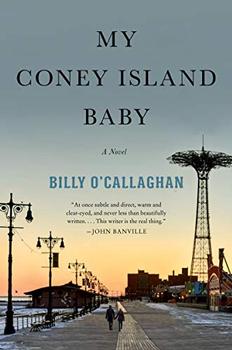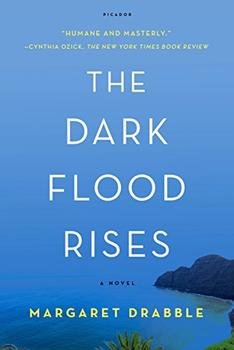Summary | Excerpt | Reading Guide | Reviews | Beyond the book | Read-Alikes | Genres & Themes | Author Bio

Her husband's hand is growing cold, so is the dinner Nina left downstairs while she holds vigil with her husband Philip's dead body. These are the practical, current realities that underpin Lily Tuck's novel. But although the framing narrative takes place in the course of a single night, Tuck manages, in just over two hundred pages, to tell the powerful and inspiring story of a long, fruitful marriage in all its strength and fragility.
Even as Nina contemplates the unthinkable - a life without her beloved husband - she recollects their first meeting, when they were both young and living in Paris, a world away from their native Massachusetts. "At the beginning, she makes a point to be difficult. She does not intend to be an easy conquest. She does not want to fall in love yet."
But fall in love, of course, she does - a love that survived affairs and tragedies and raising a daughter who was as beautiful as she was difficult to raise. Nina and Philip approach the world from very different directions. She is a painter, guided by emotion and beauty, easily swayed by romance and impulse. He is a mathematician, a researcher in probability, able to reduce any problem or debate to its most logical, rational terms: "Dreams, Philip says, are generated in the brain stem and are meaningless until the dreamer transforms them to suit his or her own personal characteristics. Nina disagrees. Dreams, she says, are motivated by desires."
The two approaches balance each other. Nina shows Philip that there are more things in heaven and earth than are dreamt of in mathematical equations. Philip introduces Nina to a realm of possibilities, using classic problems in mathematics to illustrate the quandaries that characterize their daily lives. These problems swirl around Nina's head, mixed up with scenes from their marriage, secret sorrows that Philip never even knew, jealousies that she's harbored for years. As the night drifts along and Nina consumes more and more wine, past and present meld in her mind. Philip's scientific examples gain new emotional heft and relevance as she reflects on the mysteries of chance and the possibilities of life within, or even after death.
As in Lily Tuck's other novels, including the National Book Award-winning The News from Paraguay, I Married You for Happiness is both deeply personal and wide-ranging, touching on locales as remote as San Francisco, Hong Kong, and islands off the coast of France as it explores the deepest intimacies of the human heart.
Even though Tuck profiles a marriage at its most vulnerable and tragic moments, she also vividly portrays the pleasures and strengths of a marriage partnership. And the ending, although ambiguous and certainly surprising, is the perfect distillation of the novel's themes and preoccupations. Tuck writes both clearly and concisely about mathematics; her explications of problems as complicated as the Schrödinger's cat paradox dovetail nicely with the rest of the narrative, echoing, but never upstaging, the novel's other themes.
I Married You for Happiness is elegiac and joyful simultaneously - a love letter to this marriage and to the idea of marriage in general.
![]() This review was originally published in The BookBrowse Review in October 2011, and has been updated for the
September 2012 edition.
Click here to go to this issue.
This review was originally published in The BookBrowse Review in October 2011, and has been updated for the
September 2012 edition.
Click here to go to this issue.

If you liked I Married You for Happiness, try these:

by Billy O'Callaghan
Published 2020
An exquisite, heart-breaking novel by an Irish discovery.

by Margaret Drabble
Published 2018
A magnificently mordant reckoning with mortality by the great British novelist.
Your guide toexceptional books
BookBrowse seeks out and recommends the best in contemporary fiction and nonfiction—books that not only engage and entertain but also deepen our understanding of ourselves and the world around us.